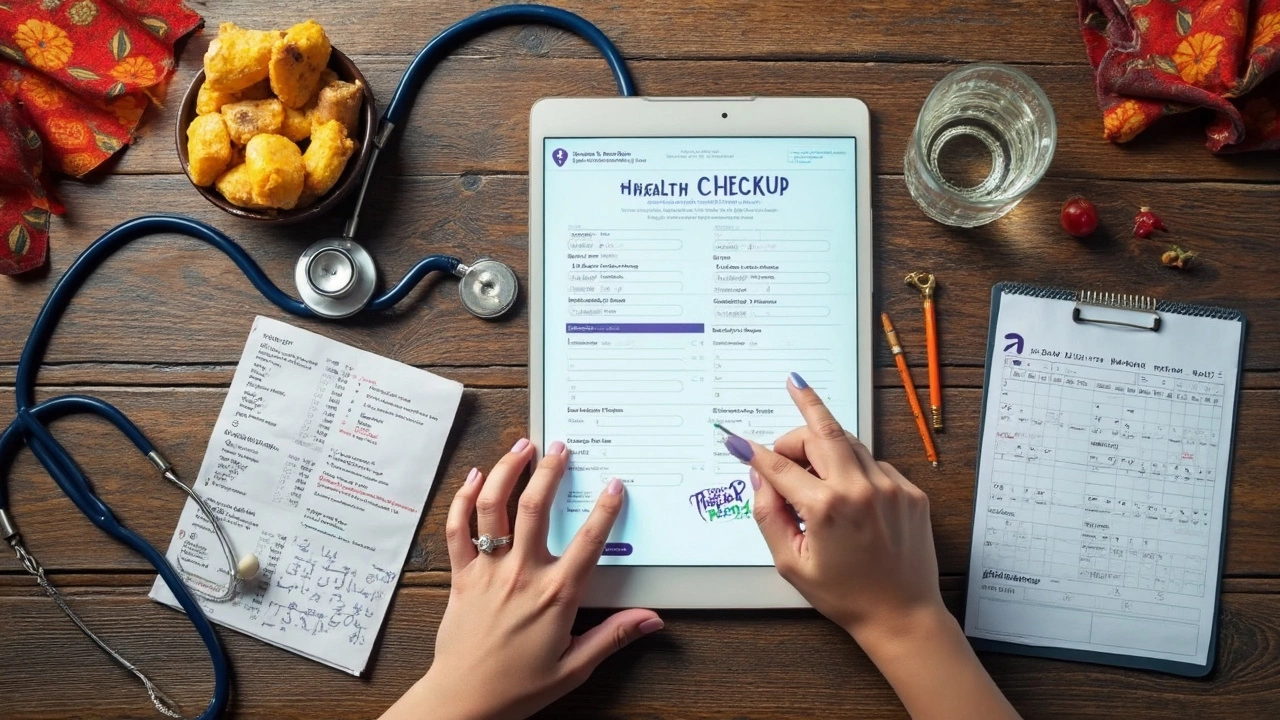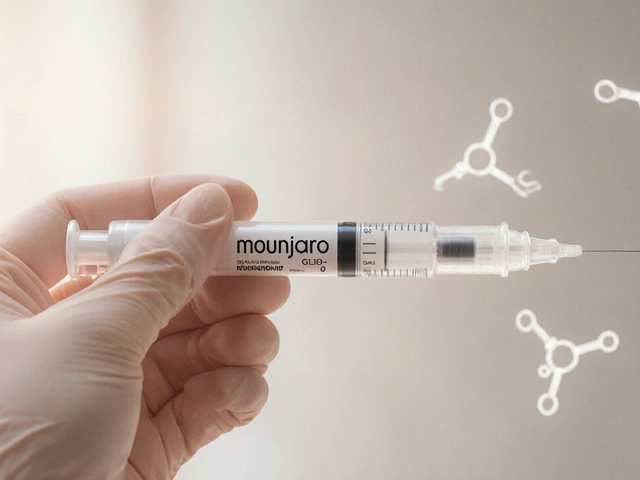Showing up for a full body checkup can feel a lot like taking your car in for its yearly service. You want to catch problems early, avoid surprises, and make sure everything’s running smoothly. But while you know what mechanics do, most people have no idea what goes on during a health checkup—or why some of those tests are even necessary.
If you’re picturing hours of poking and prodding, relax. A full body checkup is usually straightforward. You’ll get a package of blood tests, heart checks, urine tests, maybe some scans, and a chat with a doctor. It’s way less intimidating than you’re imagining, and the payoff is huge: many conditions are fixable or manageable if you catch them early enough.
Ever wondered why people who “feel fine” still get those regular tests? Silent issues like high cholesterol, early-stage diabetes, thyroid problems, or liver issues can lurk for years without saying a word. A full body checkup is about finding these “silent” problems before they become big headaches.
- What Is a Full Body Checkup?
- Most Common Tests Included
- How to Prepare for a Checkup
- What Happens During the Checkup?
- Understanding Your Results
- Tips to Get the Most Out of Your Checkup
What Is a Full Body Checkup?
A full body checkup is basically a one-stop health screening. It’s a bundle of blood tests, scans, urine checks, and a physical exam rolled into one. The idea is to find hidden health problems before they get serious. Usually, these packages are available at hospitals, big clinics, and even through some insurance providers.
This checkup doesn’t just look at one organ. It covers your heart, liver, kidneys, lungs, and metabolism. In short, it’s a complete once-over. It usually takes a couple of hours in the morning, since many tests like blood sugar and cholesterol require fasting.
Here’s what most health checkup packages include:
- Blood sugar and HbA1c to catch diabetes early
- Lipid profile for cholesterol levels
- Liver and kidney function tests
- Thyroid function check
- Urine analysis
- Heart health screening, sometimes an ECG or even a 2D Echo
- Chest X-ray or abdominal ultrasound
No two full body checkups are identical. Some offer more advanced tests depending on your age, family history, and risk factors—think cancer markers or vitamin D levels. The bigger the package, the higher the price.
According to the Indian Council of Medical Research, "Regular preventive health checkups can lower the risk of chronic conditions by up to 35%, especially when started before the age of 40."
"Annual health checks are about being proactive rather than reactive. They’re the best way to catch silent threats before symptoms appear." — Dr. R. Lakshmi, Internal Medicine Specialist, Apollo Hospitals
Checkups aren’t just for folks who are sick or getting older. If you’re over 30 or have a family history of things like diabetes, heart problems, or high cholesterol, doctors suggest looking at a medical test package every year or two. The earlier you spot an issue, the more choices you have for handling it.
Most Common Tests Included
So, what actually happens during a full body checkup? Here’s the real stuff: you’re not just getting your weight taken and a thermometer stuck in your mouth. These packages are stacked with medical tests that cover major parts of your body and spot health issues that can sneak up without any symptoms.
- Blood Tests: The main event. A complete blood count (CBC) checks for anemia and infections. Blood sugar tests screen for diabetes. There’s also a lipid profile to see your cholesterol and triglyceride levels (huge for heart health), liver and kidney function tests, and thyroid checks. If you’re over 40 or have risk factors, some packages toss in vitamin D and B12 levels as well.
- Urine Analysis: This simple but important test helps catch early signs of kidney disease, diabetes, or urinary tract problems. It’s quick and painless, but surprisingly revealing.
- Heart Checks: An ECG (electrocardiogram) records your heart’s rhythm and electrical activity, flagging any odd beats or old silent heart attacks you might not know about. Some places add a Treadmill Test (TMT) to check your heart’s stamina during exercise—handy if you have family history or high blood pressure.
- Liver and Kidney Function Tests: These show how well your organs are working. Undiagnosed issues in liver or kidneys are more common than you’d think.
- Chest X-ray: Usually included to look for infections, lung problems, or early clues of chronic conditions.
- Ultrasound Abdomen: This scan checks your liver, kidneys, pancreas, spleen, and gallbladder for stones, fatty changes, or growths—without any pain or downtime.
Depending on your age, gender, and risk factors, the package might add tests like PSA for prostate in men or Pap smear/mammogram for women. Some fancier packages throw in vitamin checks and bone density scans too—ask if you want these.
| Test Name | Main Purpose |
|---|---|
| Complete Blood Count (CBC) | Anaemia, infection, overall health |
| Blood Sugar | Diabetes risk |
| Lipid Profile | Cholesterol, heart risk |
| Liver Function Test | Liver health |
| Kidney Function Test | Kidney health |
| Urine Analysis | Kidney, diabetes, infection |
| ECG | Heart health |
| Ultrasound Abdomen | Liver, kidneys, pancreas, gallbladder |
| Chest X-ray | Lung infections/issues |
The big idea is simple: each of these health checkup package tests covers a key area where diseases can hide out, often without a hint of symptoms. Don’t skip them, especially if you have a family history of chronic illness, you’re over 30, or you’re just tired of rolling the dice with your health. You don’t want regrets later.

How to Prepare for a Checkup
Getting ready for a full body checkup is actually pretty simple. A few small moves make a big difference in your test results and how smooth the day goes.
- Fasting: Most blood tests need you to skip food for 8–12 hours. Water is totally fine—in fact, drink enough so you’re well hydrated. But avoid coffee, juice, or tea, and don’t sneak in a midnight snack.
- Medications: Bring a list of what you take (prescription, over-the-counter, even vitamins). Some meds can mess with your results. Tell your doctor about them before the tests, and ask if you should pause any that morning.
- No Alcohol or Smoking: Ditch booze and cigarettes for 24 hours before your checkup. They can throw off your liver tests and even your blood pressure.
- Wear Comfortable Clothing: You might need to change for scans or heart tests, so avoid tight or tricky outfits. Stick to simple, easy-to-change clothes.
- Sleep Well: Poor sleep can bump up your blood pressure or sugar levels. Aim for a solid 7–8 hours the night before.
- Jot Down Symptoms or Concerns: Got random pains, weird changes, or even family history questions? Write them down and bring the list. It’s easy to forget in the moment.
If you’re doing a urine test, you’ll be asked to provide a sample at the clinic—no need to prep in advance, but arriving hydrated helps here too.
Here’s a quick cheat sheet to remember basic dos and don’ts:
| What To Do | What To Avoid |
|---|---|
| Fast 8–12 hours | No food, coffee, tea, juice |
| Stay hydrated (drink water) | No alcohol or smoking |
| List your medicines | Don’t start new meds without telling your doctor |
| Get enough sleep | Don’t stay up late or pull an all-nighter |
One more thing: if you’re anxious about the health checkup package, ask at the clinic exactly what’s included and if you need to prep for any specific test. Most places will send a checklist before your appointment, but there’s no harm asking.
Understanding Your Results
You just finished your full body checkup and now you’re staring at a bunch of numbers and strange words on your report. Honestly, most people don’t know what half these things mean—but a little know-how goes a long way. Let’s break down the essentials so you can actually use this info to stay healthy.
Start with the basics: look for anything flagged as “high” or “low.” These are the items your doctor will focus on, since they’re outside the normal reference range. For example, with blood tests, you’ll see separate results for cholesterol, blood sugar (glucose), hemoglobin, and more. Here’s what some of these mean in real life:
- Cholesterol—If LDL (the "bad" cholesterol) is high, you’re at a higher risk for heart disease. HDL is the "good" kind, and you want it higher.
- Blood Sugar—Numbers over 126 mg/dL after fasting might mean diabetes or pre-diabetes. The normal range is usually 70–99 mg/dL.
- Liver Tests—ALT and AST are enzymes. High numbers might mean your liver’s under some stress, which could be from alcohol, medicines, or something else.
- Kidney Function—Creatinine and blood urea nitrogen (BUN) show if your kidneys are filtering well. High numbers might mean a problem that needs attention.
- Thyroid Levels—TSH that’s too high or too low can mess with your energy and weight, and might mean your thyroid needs treatment.
Here’s a quick sample of normal and abnormal values often checked in a health checkup package:
| Test | Normal Range | Flag for Concern |
|---|---|---|
| Fasting Blood Sugar | 70–99 mg/dL | >126 mg/dL |
| Total Cholesterol | <200 mg/dL | >240 mg/dL |
| ALT (Liver) | 10–40 U/L | >40 U/L |
| Creatinine (Kidney) | 0.6–1.3 mg/dL | >1.3 mg/dL |
These numbers can feel overwhelming, so don’t just Google everything. Bring your medical tests report to your doctor and ask what your results mean for your personal health. Actionable tips could be as simple as eating less salt, getting in more steps, or coming back for a repeat test in six months.
The real value of a preventive care checkup isn’t just about catching scary diseases—it’s about spotting little issues early, before they mess up your day-to-day life. If you don’t understand something on your report, don’t leave the clinic until you ask your doctor.

Tips to Get the Most Out of Your Checkup
There’s no point in paying for a full body checkup if you walk out more confused than when you walked in. Getting real value from your health checkup package depends on a little planning and knowing what to expect. Here’s how you make the most out of the whole thing.
- Bring your questions: Write down anything that’s been bugging you—no question is too small. If you get nervous at the doctor’s office or forget things, a quick list on your phone helps.
- Share your family history: Got hypertension, diabetes, or heart problems in your family? Let your doctor know. This helps them decide if you need extra checks or specific blood tests.
- Don’t hide symptoms: Even if something feels embarrassing—like snoring, stomach trouble, or weird rashes—mention it. Doctors lose nothing by your honesty; you might save yourself hassle later.
- Follow the fasting rules: Some tests (like fasting blood sugar or lipid profile) need you to avoid eating for 8–12 hours. Mess this up, and results can be off. Confirm the rules with your clinic the day before.
- Carry old reports: If you’ve got results from previous medical tests, bring them. Comparing can spot trends and changes you might not notice yourself.
- Track your medicines: Write down everything you’re taking—from prescription meds to multivitamins and ayurvedic stuff. Some things can mess with test results or even interact with new prescriptions.
Did you know? Around 30% of adults under 40 in India show early-stage risk markers in preventive care screenings, mostly without symptoms. Textbook health can still hide problems—so relax, but take checkup results seriously.
| What to Bring | Why It Matters |
|---|---|
| Old health reports | Track progress over time |
| Medication list | Spot drug interactions |
| Your questions | Clear doubts on the spot |
When you get your health screening results, ask for simple explanations. If your doctor uses big words, don’t be shy—ask them to break it down. It’s your health, and understanding it beats blindly nodding along.
And one more thing—don’t dump your results in a drawer and forget them. Use those reports to set health goals for the next year, like improving your cholesterol or working on weight if needed. The next checkup then becomes a personal scoreboard, not just another routine task.





